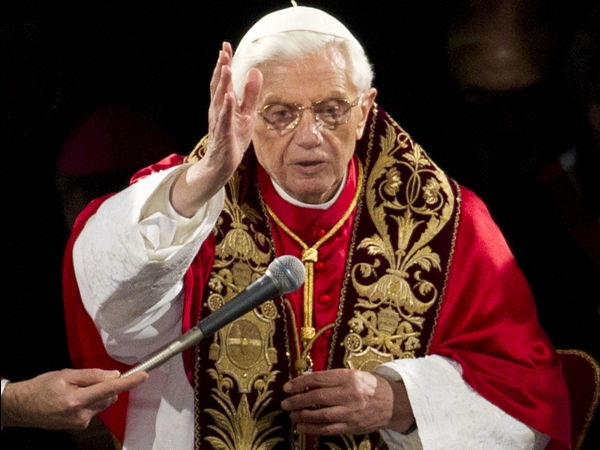The year beginning today promises to be the busiest yet for Benedict XVI’s pontificate, as the almost-83-year-old-Pope is planning four international trips and a synod on the Middle East.
The year 2010 looks to be one of the most intense of his five years in the Chair of Peter. The Pope will turn 83 on April 16, but this does not affect how quickly his calendar fills up.
The Holy Father will visit Malta, Portugal, Cyprus and the United Kingdom during 2010. He will also preside over the first synod on the Middle East, and his several pilgrimages within Italy will include celebrations as momentous as a visit to the Shroud of Turin.
It also promises to be a year when the expected will come to pass: Pope John Paul II might be beatified (though the Vatican has repeatedly reiterated that his cause must follow the normal path leading to beatification), and the second part of Benedict XVI’s bestseller “Jesus of Nazareth” could be published. As well, his apostolic exhortation taking up the conclusions of the 2008 synod on the Word of God could be released. The year beginning today is also expected to bring forward causes that the German Pope has made a priority: advances in Christian unity, and unity with other religions, particularly Islam and Judaism.
In fact, one of the most symbolic events of the year will be his Jan. 17 visit to the Synagogue of Rome. That trip will take place just weeks after some Jews have protested the Holy Father’s official recognition of the heroic virtues of his predecessor, Pope Pius XII.
In reviewing 2009 with the Roman Curia, Benedict XVI observed that last year developed in the light of Africa. The synod on Africa in Rome and the Holy Father’s first trip to the continent as Pontiff marked 2009. In this regard, 2010 will be a year in the light of the Middle East, given that the synod to discuss that region is scheduled for Oct. 10-24.
The Pope will officially present the working document for the synod during his visit to Cyprus from June 4 to 6.
That trip is symbolic for other reasons because it will bring to light certain central themes of the pontificate, such as dialogue with the local Orthodox Church. That Church, since the 2006 election of Chrysostomos II, has become a leader in ecumenical efforts, as well as a promoter of interreligious dialogue with Islam, due to Turkish presence on the divided island.
More details to follow…
ROME, JAN. 1, 2010 (Zenit.org)





